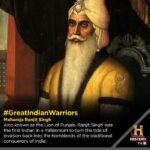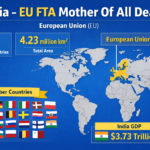DADABHAI NAOROJI: THE GRAND OLD MAN OF INDIA

Known as the Grand Old Man of India, Dadabhai Naoroji was an intellectual, freedom fighter, political figure, educator and social reformer who worked to promote the Zoroastrian religion and the Indian culture. He spearheaded India’s freedom struggle by giving speeches and writing articles on the exploitation of India by the British.Dadabhai Naoroji was born on 04 September 1825, Mumbai and died on 30 June 1917 .
FACTS ABOUT DADABHAI
He founded a fortnightly publication, the ‘Rast Goftar’, meaning the ‘truth teller’ in 1853 to clarify the Zoroastrian concepts to the common man; founded the Rahnumae Mazdayasne Sabha (Guides on the Mazdayasne Path).
In 1866, he established the East India Association in England. This was a platform to put forward the grievances of Indians in Britain. To promote these further, branches of the association were also established in different parts of India.
He was the founder of Bombay Association and established it in 1852. He established the London Indian Society along with N.C. Banarjee for the betterment of relationships between Indian and Englishmen.
He was a Member of Parliament in the Parliament of the United Kingdom between 1892 and 1895, and the first Asian to be a British MP.
Elected as the President of the Indian National Congress for three times i.e. in 1886, 1893 and 1906.
Dadabhai Naoroji’s concept of wealth drain from India during British rule got huge attention. He mentioned the same concept in his book Poverty and Un-British Rule in India. He was the first man to assert that internal factors were not the reasons for poverty in India. But that colonial rule, which was draining the wealth and prosperity of India, caused it.
Dadabhai Naoroji considered it as a major evil of British in India. The drain of wealth was the portion of India’s wealth and economy that was not available to Indians for consumption. Dadabhai Naoroji gave following factors that caused external drain. These are:
External rule and administration in India. India paid all the civil administration and army expenses of Britain. India was bearing the burden of territory building both inside and outside India. Brtish exploited India by opening the country to free trade. Major earners in India during British rule were foreigners. The money they earned was never invested in India to buy anything. Indian labour was deeply undervalued. Along with this, the East India Company was buying products from India with Indian money and exporting it to Britain.C. Dutt also promoted the same theory by keeping it as a major theme of his book Economic History in India.





0 Comments